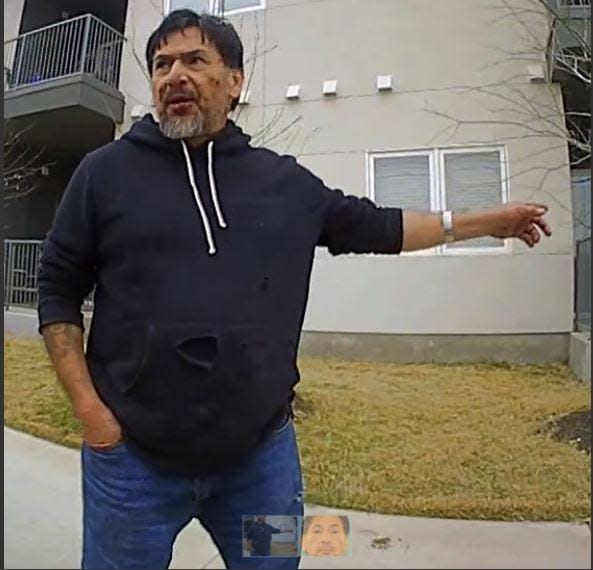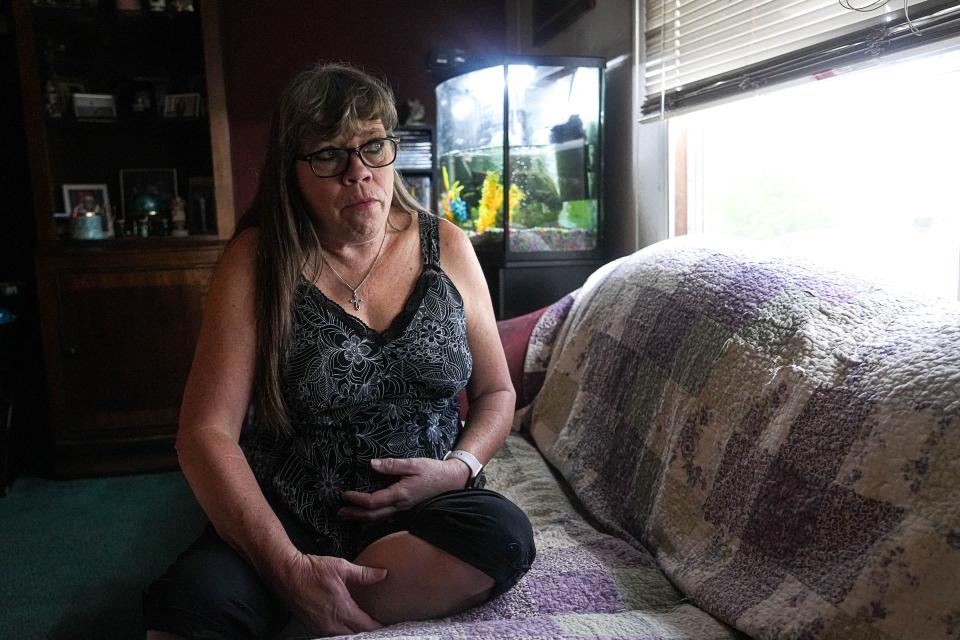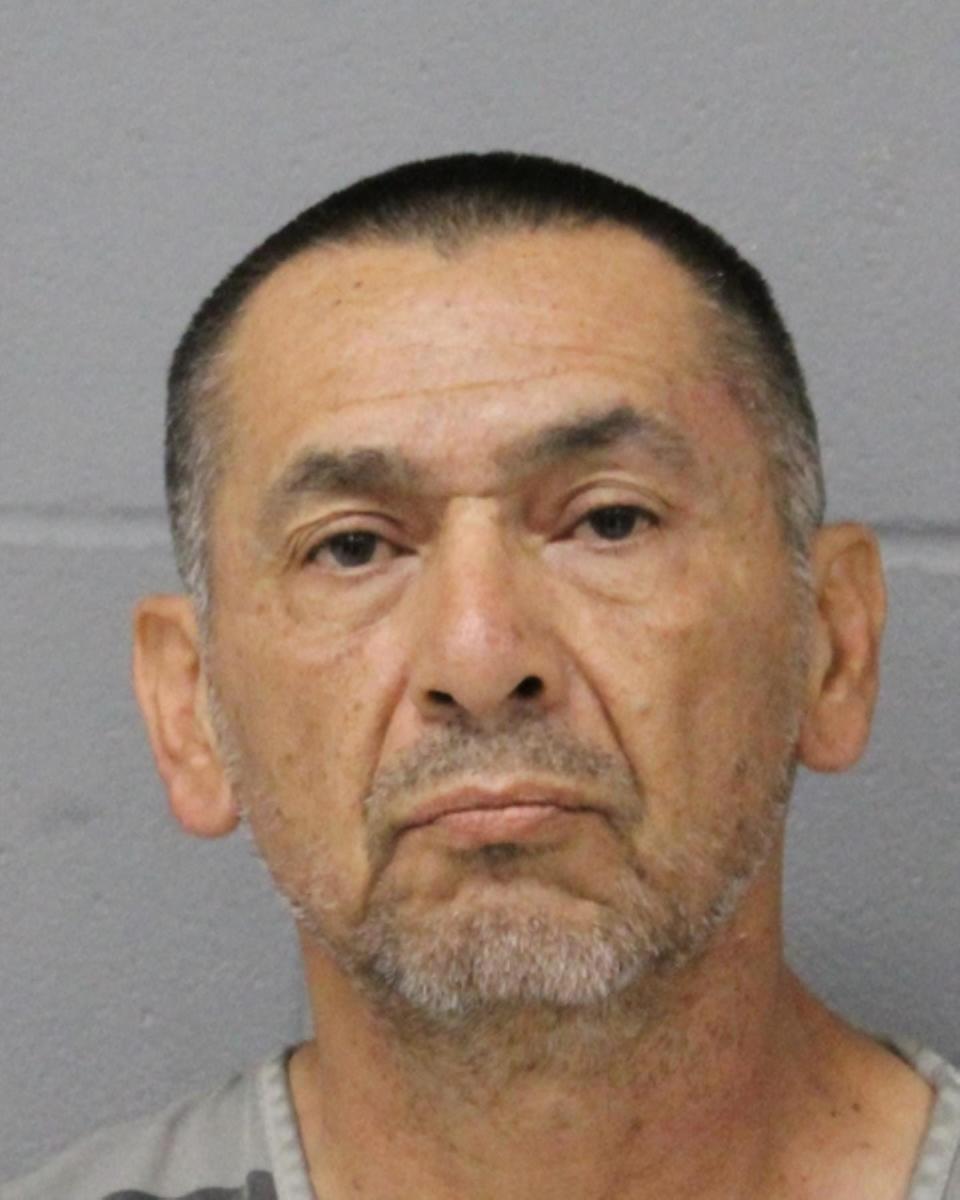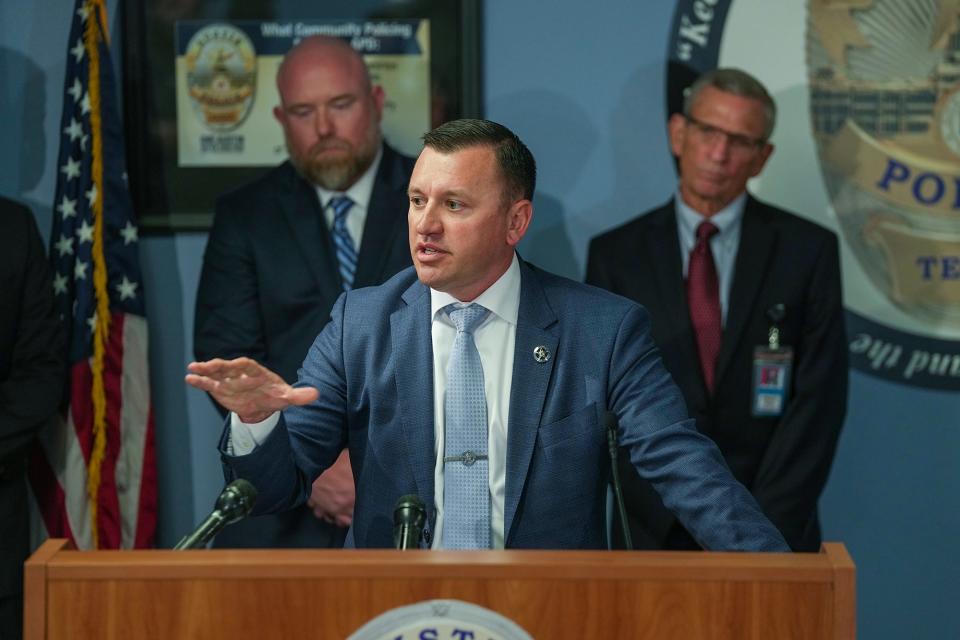New Texas law could have stopped accused serial killer Raul Meza from striking again
On the very day authorities arrested accused serial killer Raul Meza last month carrying a backpack filled with zip ties and duct tape, Texas lawmakers 12 miles away at the Capitol passed a legislative mandate police say could have saved Meza’s latest victim.
House Bill 4628 closed what victim advocates and law enforcement leaders consider a deadly communication gap between crime labs and investigators – a haunting example of what can happen when an email goes unread or a voicemail goes unheard.
The measure, which goes into effect Sept. 1, created a new requirement that crime labs must notify a law enforcement agency within 30 days when they obtain a match from DNA or other forensic evidence. Then, the police agency must verify with the lab that it received the information within five business days. Thirty days after that, police must also demonstrate that they have attempted to follow the lead, including attempts to get a new DNA sample from the suspect.

More: Sister of Kendra Page faces horrific memories after serial killer Raul Meza arrested
Had that seemingly basic communication structure been in place, either Austin police or the Texas Department of Public Safety would have realized that an Austin police investigator missed or failed to pursue an electronic message on June 4, 2020. The notification confirmed that DPS analysts had obtained a match in the national Combined DNA Index System, or CODIS, offender database linking Meza and DNA found on 65-year-old Gloria Lofton’s body.
At that time, officials with the DPS, which processes tens of thousands of samples a year for local law enforcement agencies, relied upon a phone call or an email to a lead investigator to notify them of a forensic match. Agencies generally had no system in place to make sure the detective received the message, however.

“Many times, depending on the type of case it is, it could be a cold case, or an older case, and that investigator has either been promoted, moved on, retired, terminated, and that email falls on dead air, dead space,” said Chambers County Sheriff Brian Hawthorne, who testified in favor of the bill for the Sheriffs’ Association of Texas. “You could have a very active hot lead that could be preventing a crime or stopping other crimes if you are able to move forward.”
Austin police are still investigating how a detective did not see or act upon the DPS notification in Lofton’s death. She was found in her home in 2019, and medical examiners said that they could not determine how she died, although they noted indications of possible strangulation. At the time, investigators collected a DNA sample from the scene and submitted it to the state crime lab.

Meza remained on the street three more years after the 2020 oversight. Police say he killed again in May, fatally stabbing 80-year-old Jesse Fraga, a former Travis County probation officer with whom Meza was friends.
Authorities have charged Meza with Lofton’s and Fraga’s deaths and are still investigating whether Meza had other victims during that time. Detectives began reexamining Lofton’s case after they said Meza confessed last month and discovered the previous DNA match from 2020.
Statewide, it is unknown how often a killer or suspect has remained free due to a lapse in communication between a crime lab and investigators.
Affidavit: Friend says Raul Meza, accused of killing two, appeared suicidal

One of the most widely reported examples is the North Texas case of Molly Jane Matheson, whose death sparked the new law this session. State Rep. Craig Goldman, R-Fort Worth, whose district includes Matheson’s home, introduced the measure.
Matheson’s killer, Reginald Kimbro, had been investigated – but not arrested – for sexual assaults in 2012 and 2014. In 2017, police in the Dallas-Fort Worth suburb of Allen were notified that crime lab analysts linked Kimbro to an assault survivor. But police did not arrest him.
Forty-one days later, Matheson, a 22-year-old student at Tarrant Community College, was found dead in her apartment after she failed to show up at her part-time job.
Four days later, Kimbro killed again, raping and strangling 36-year-old Megan Getrum, who disappeared from a Plano nature preserve. Her body was later found in Lake Ray Hubbard.
Who is convicted murderer Raul Meza Jr.? Here's what we know
Tracy Matheson told the American-Statesman in a recent interview that Allen police missed a notification about the DNA match to the earlier sexual assault survivor.
“It is my understanding that it went to an inbox that didn’t belong to anyone,” said Matheson, who has since started a nonprofit advocating for sexual assault survivors. “It was not being monitored. It was not received by whomever should have received it. And so it sat unread, and Molly was killed 41 days later.”
In March 2022, Kimbro pled guilty to the two murders and received two life sentences.
The Allen Police Department said in a statement that it faced a three-year delay in receiving test results from the DPS due to a backlog, allowing Kimbro to continue carrying out crimes.
“(The Allen Police Department) acknowledges additional delays occurred due to case reassignment over the intervening years along with the volume of active cases at that time,” the statement said. “APD has since made several improvements to case management. …We believe these measures will ensure prompt processing of DNA evidence to provide more timely resolution for victims.”
Police: Raul Meza charged in two deaths, may be involved in 10 more
Matheson said she is pleased to see the new law in place, but she was surprised that police agencies and labs did not already have such systems.
She said she hopes that dangerous criminals can more quickly be taken off the street, and that no family will suffer as she has for the past six years.
“When the CODIS hit happens, police need to follow the trail and figure out how to get the evidence so you can make the case,” she said.
This article originally appeared on Austin American-Statesman: Raul Meza killed, cops say, but new law came too late for one victim

